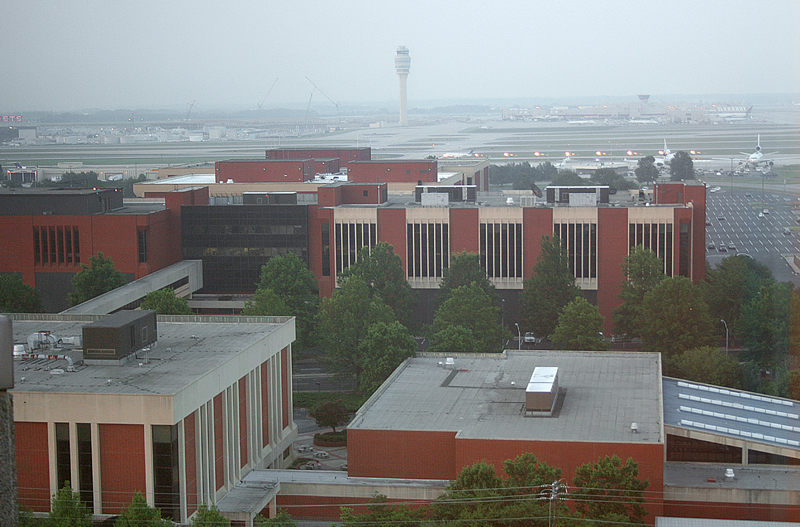The price of crude oil has been substantially depressed in recent months as a result of the reaction to the current 2019 Novel Coronavirus pandemic, as a variety of factors — including the decreased usage of motorized vehicles and jet airplanes — contributed to lower demand for processed fuel.
Delta Air Lines Not Gushing About Its Oil Refinery Lately?
One example of the decreased demand for fuel is the price of gasoline, which bottomed out in April of 2020, as the price for a barrel of crude oil dipped to historic low prices during that same month. As an example, the price for a gallon of gasoline was as low as 84 cents per gallon in Michigan — although the time when the price of as low as 79 cents for a gallon of gasoline was so brief that a timely article to highlight it here at The Gate was not possible.
Cheap fuel may be good news in the short term to the consumer who is conscious about cost — especially if he or she is one of the tens of millions of people who are currently unemployed in the United States — but it seems to not be good news for the oil refinery industry.

Delta Air Lines invested $180,000,000.00 on the acquisition of its own oil refinery in Trainer in Pennsylvania back in 2012 when jet fuel prices were significantly more expensive — plus an additional $100,000,000.00 on upgrades and improvements aimed at maximizing the production of jet fuel — with the expectation of saving approximately $300,000,000.00 per year on the hopes that that the oil refinery would pay for itself within a year in addition to a surplus of twenty million dollars.
Unfortunately, the oil refinery industry is vulnerable to extreme inclement weather such as hurricanes — and, apparently, to health emergencies such as viral pandemics.
“This year, as the coronavirus hammered demand for air travel, it has become a liability for Delta, widely considered by analysts as one of the best-run airlines in the country”, according to this article by Clifford Krauss and of The New York Times. “Today, airlines and refineries face their biggest crises in modern times. Tens of millions of people are working from home, and the number of people flying is down about 75 percent from a year ago.”
Monroe Energy LLC — which is a wholly-owned subsidiary of Delta Air Lines — has reportedly been one of many casualties in an industry which is operating well below capacity, idling plants, and losing money. It “lost $114 million in the second quarter, and its future appears bleak. In 2018, Delta announced that it was interested in finding a partner to jointly own and operate it, but it never found any takers.”
The International Air Transport Association “updated its analysis of the financial impact of the novel coronavirus (COVID-19) public health emergency on the global air transport industry”, according to this official press release. As of Thursday, March 5, 2020, the International Air Transport Association “sees 2020 global revenue losses for the passenger business of between $63 billion (in a scenario where COVID-19 is contained in current markets with over 100 cases as of 2 March) and $113 billion (in a scenario with a broader spreading of COVID-19). No estimates are yet available for the impact on cargo operations.”
Furthermore, the decimation of the travel industry is not expected to recover until at least the year 2024, according to the International Air Transport Association — which does not bode well for either commercial airlines or oil refineries.
Fuel Hedging
Many airlines use a concept known as fuel hedging in order to mitigate the risk of the volatility of fuel prices. “Fuel hedging means an airline agrees to purchase a certain amount of oil in the future at a predetermined price. Airlines hedge fuel costs in a number of ways, including purchasing current oil contracts, buying call options or purchasing swap contracts”, according to this article written b “On the other hand, hedging helps aviation fuel market vendors like Shell, Air BP or Exxon Mobil to lock in future sales at a set price, thus providing them with stable, predictable revenues. In effect, by entering into futures contracts, both parties agree to give up potential profits in return for certainty. With fuel hedging, there is always a ‘winner’ and a ‘loser’.”
In other words, fuel hedging is like betting on the future price of jet fuel — and Delta Air Lines was hoping to mitigate the gamble by betting on operating its own oil refinery.
Summary
An airline purchasing an oil refinery seemed like such a good idea in 2012 that Jeff Smisek — who was the chief executive officer of the parent company of United Airlines — was considering the purchase of an oil refinery for United Airlines. After all, imagine having more control over one of the main operating expenses of running a commercial airline…
…but one can analogize that the concept of a commercial airline owning an oil refinery may be similar to a lodging company owning a furniture company, an electric company, or a food service company to have more control over those expenses. Theoretically, the concept could be successful — but only when experienced people who are knowledgeable about how to operate those aspects of the supply chain are in charge of the decisions — and even then, oil is a commodity which is sensitive to world events and whose prices fluctuate accordingly.
No official word directly from Delta Air Lines as to the ultimate fate of its oil refinery operation was available at the time this article was written.
The main campus of the world headquarters of Delta Air Lines in Atlanta has been under gloomy skies as of late. Photograph ©2009 by Brian Cohen.

